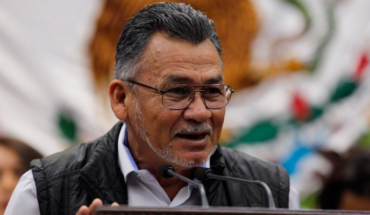The proposal for a new Constitution in the field of the right to health had the great virtue (and for it I promoted and defended it in various forums) of breaking a political stalemate, which has made us for decades unable to overcome the current inefficient and inequitable fragmentation and segmentation of our health system. If the proposal had been approved, we would somehow be forced to negotiate on the structure and form of operation of a public body responsible for pooling funds via general taxes and contributions, together with democratically debating and resolving the way in which the private sector would participate at the level of insurance and provision. The court and its rules would be different and the debate would have to be limited to how the various actors adapt to a universal system, with a model of common care and with clear stewardship of the State.
That was no longer, the proposal was rejected and we are where it is. The sad thing is that we already have 2 million compatriots waiting an average of 2 years for a specialty consultation and several hundred thousand for surgery. In the private sector, the problems are not minor, the isapres, in addition to continuing to discriminate and give insufficient financial protection, are complaining about sustainability problems and the courts of justice in practice are making up for the inability of legislators to solve the problems of the sector. In turn, private providers have no incentive to control spending, since they transfer all the risk to the user and public hospital providers, no incentive to increase production and user satisfaction, since they transfer more and more resources to them, whether they do or not.
The funny thing is that practically everyone agrees on the diagnosis, but we have not achieved basic consensus on the treatment, so the patient will probably continue to worsen. What are the knots to enable transformations?
The first knot is that we would all like to pool funds for reasons of efficiency, but the possibility of moving forward is paralyzed, either in the face of the dilemma that there is only one public insurance or that private insurance, especially lucrative, can participate in a social security system in health. Given the above, one could then consider only improving what there is: making legislative changes so that the Ministry of Health defines a universal health plan based on the recommendations of a solid technology assessment institution (ETESA), where Fonasa has more autonomy and better capacities to take responsibility for said plan and resolving the gross failures of the isapres, So that they grant the universal health plan, ideally with the same model of care (networks based on primary care), without pre-existing conditions, or discrimination by sex, age or risk (flat rate) and relating to providers through payment mechanisms that contain cost and encourage efficiency and health impact. But there is also no willingness to improve what there is, since either the “real great reform” (the one I want) is made or, if not, I prefer everything to remain the same.
The second knot is related to public provision. There are already several independent reports on the efficiency problems of the sector, kept in the drawers of Parliament or academia. Solving them would involve removing the government from hospitals from the Ministry of Health and giving governance to public networks different from the current one; make legal modifications that facilitate better management and generate a salary relationship with doctors that aims at results and impact (today they are paid by time, regardless of what they do); significantly increase the funding and role of primary care; and assume that users and their communities must exercise real protagonism and responsibility. In theory there seems to be agreements, but when it comes to deciding and implementing, everyone is afraid to touch the huge interests at stake and the comfortable status quo is chosen.
The third knot, no less complex, is the permanent incentive that private providers have to induce more benefits and higher cost, together with the zero incentive to prevent people from getting sick. In the speech everyone declares the importance of prevention and health promotion, but in practice the business is in the disease.
So what to do? After the defeat of 4S, the current balance of power in Parliament and that probably an eventual new Constitution will be enough More neutral and light in the field of health, it seems that the most comfortable scenario is that nothing happens. This would be of a nameless gravity and would imply not understanding that citizens expect improvements from dialogue and agreement. Perhaps the only alternative, not easy, is to try to agree on an itinerary, as a State policy, from intermediate steps in what generates greater consensus and higher impact and that in the future make it possible to resolve the knots of greater dissent. Is it possible? I expect an affirmative answer, to the extent that citizens demand it with increasing force.
Follow us on
The content expressed in this opinion column is the sole responsibility of its author, and does not necessarily reflect the editorial line or position of El Mostrador.





